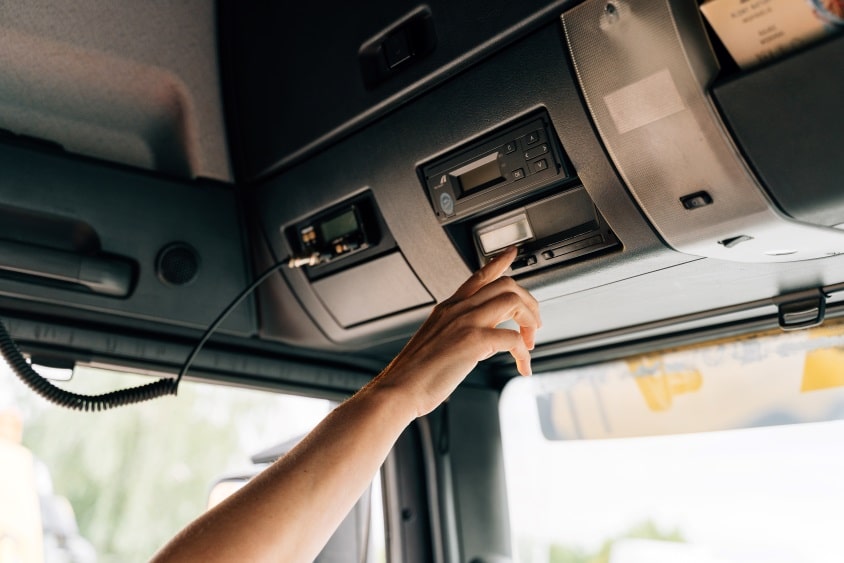Creating a business case for introducing telematics
Written by: Simon Pavey, Last updated:16th March 2022

Whilst we know that telematics can offer fleets a great deal of benefits, it is worthwhile for fleet managers to craft a business case that outlines the potential return in investment.
In some scenarios, the prospect of saving on fuel won’t be enough to sway a business to incorporate telematics into their fleet. However, a strong business case that details the other advantages of telematics could be the way to persuade a boardroom.
Would your business benefit from telematics?
Before you consider proposing the introduction of telematics to you fleet, you should evaluate whether it is in the best interest of the business.
The upfront cost of telematics is often the reason some workplaces reject the idea. However, it is important to consider the long term benefits. When used to efficiently, businesses have the potential to achieve a 100% return on investment in their first few months of using telematics.
Even if business owners are made aware of the potential fuel savings and increased productivity, they are still cautious to opt into the use of telematics.
They may be worried that drivers would view its installation as a breach of their privacy. Maintaining a good relationship with drivers is a key part of fleet management, so this concern is shared by many.
When used correctly, however, telematics do not pose a threat to the drivers’ privacy. The technology helps to improve communication amongst the fleet. This saves time and boosts efficiency.
When building a business case in favour of telematics, expect any resistance to come in the form of the above concerns. Knowing the full benefits of telematics can help to remove any doubts your business may have.
How can telematics improve fleet management?
Reduced fuel costs
The benefit that is likely to appeal to many businesses is that you can reduce fuel costs. The 2016 RAC Telematics Report states that users were reducing their fuel use by up to 55%. By following the most efficient routing provided by the telematics, drivers are reducing their overall miles.
Fleet managers can see when their vehicles are frequently idling and make adjustments so this is avoided in future.
If drivers are consistently wasting fuel by speeding and aggressively breaking, the fleet manager will be notified and can take action accordingly.
Reduced maintenance costs
Telematics can warn fleet managers when there are mechanical issues in their vehicles. Getting these issues fixed early on reduces the risk of breakdowns in the future.
This reduces not only the maintenance cost, but unexpected downtime as well. The less time your vehicles spend being repaired, the more time they can spend on the road.
Reduced administrative costs
With the extensive data received through telematics, fleet managers can reduce time spent on admin. Accurate mileage reports mean filing taxes and expense reports is a painless task. With more time to spend on other aspects of fleet management, the business is saving money.
Improved customer service
Your business case should acknowledge the customer service benefits of telematics. Customers are able to stay informed about the location of their deliveries, and be given estimated time of arrival.
Seeing the business run smoothly and meeting deadlines is likely to improve customers’ impression of your services, making them more likely to return.
Increased driver safety
A benefit of being able to keep track of a driver’s location is that, in case of an accident, emergency services can be sent directly to them.
Feedback about a driver’s dangerous habits can also help them to improve their driving. This will greatly reduce the risk of accidents in the future. Fleet managers can use the data to train drivers to amend specific, dangerous habits they have developed.
A business case should always highlight the financial benefits
Remember that your business will need to understand how telematics can save them money. Fleet managers need to give a strong business case that gives a clear outline as to how this technology will keep spending down, despite the initial costs.
If your business remains unconvinced, remind them that their competitors will adopt the use of telematics. Get there first, and you’ll be able to reap the rewards.
For more information about what telematics can do for your fleet, get in touch with the team at Tele-Gence.
Tele-Gence helps to reduce costs across your fleet, as well as offering improved safety and security. It also integrates seamlessly with your fuel card account, further reducing administration time and costs.
back





